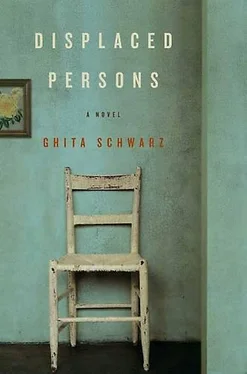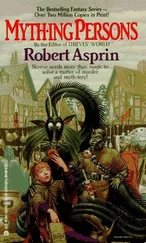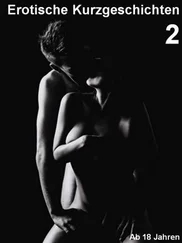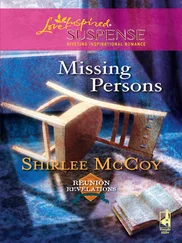Oop! she cried. And dropped her foot down to brake herself.
Good! said Pavel. Very good.
No, no, said Fela. I’m afraid. Too afraid for it. But she started again, slower than before, the bicycle leaning from side to side.
If you go a little bit faster, said Pavel, just a little bit, it won’t shake so much.
She stopped again, unbuttoned another button near the hem of her skirt.
Pavel trotted behind her as she moved her pale legs. Many times he had perched girls on the frame in front of him, grasping them by the waist, cycling in the forest behind his grandfather’s town so as not to create a scandal. But here he was, so many years later, no community to scandalize, no one left to be shocked, and he was careful, more careful than he ever had been.
IN THE EVENINGS THE three of them smoked in the garden, playing card games on a folding table they had found in the pantry. A few times Chaim brought home a friend he had met at his job in the camp print shop. The friend brought camp newspapers and bulletins in exchange for the food Fela made. Pavel approved. He liked that his house should welcome refugees as a camp could not. And it was good Chaim had a friend. Everyone needed a companion, Pavel thought. A young boy especially. A wheel on its own would not go anywhere, but attached to a frame and another wheel it could be a bicycle, and a bicycle could travel, move, carry, and work. God gave Moses the commandments in two stone tablets. Two was a stronger number than one.
They played rummy, and a version of poker Fela would not reveal how she had learned. Before the war, Pavel didn’t play cards. But early on, after he had fled to a town not yet clean of Jews, he had stayed with a family he knew only slightly, and the father and daughter had taught him to play in the evenings, when no one was allowed out. They knew him only by a false name, Miloch, but he became close with them, especially the daughter and her husband, and he learned the game fast. He could make his face a mask and trick the others into thinking his prospects were bad. It was a good skill.
The war had ended, but still he played with deep concentration, breaking his thoughts only to watch as Fela cast out a card, or mocked a mistake of Chaim’s, or laughed as she laid out her winning hand. Fela made fun of his gloomy expressions.
So serious! she would say. We’re still alive, even if you lose the game!
He would want to answer, Who says I will lose? But he kept quiet, instead letting out a mournful sigh as he shifted in his seat.
He saw that Fela was the most cheerful when she played cards. The rest of the day, her chores and her cooking, her letters to Palestine and to Poland, her squinted reading of the camp newsletters, she approached with grim drive. He liked to keep her playing cards as late as possible, so he could hear her shouts of victory and affectionate jokes before he went to sleep.
PAVEL AWOKE IN THE middle of the night. He got up and went to the drawer where he had placed his wallet and a little envelope of his pictures. He caressed the brown packet. He did not need to take the pictures out. If he stopped moving altogether, he thought he could hear Fela rustling in the bedroom across the corridor, Chaim’s hard breaths in the living room. They seemed at peace. In the day it was easier for him than for them-Fela afraid to go into the garden, Chaim lying on the sofa and humming-but at night they were free. Perhaps their thoughts exhausted them during the day, and their bodies had no choice after the sun went down. Meanwhile Pavel was alone, trying to explain things to himself without the help of a night companion or a fellow traveler. When Fishl had been with him there had been an understanding. He had been a guide, recognizing Pavel in the entry room of the death camp, advising him how to keep alive. The skills he and Fishl had taught each other kept him alive even now. Yet now Pavel was confused, more confused than he had been in years. He could speak more languages than a military interpreter, but still he did not know what to call this house and these companions. He needed an instruction manual to tell him how to wait calmly for food, how to talk with confidence to a soldier, how to sleep.
He returned to the bed. When they were children, his mother had given each of them a piece of chocolate in bed each night, in the dark. After her death, when he was sent east to live with his grandparents, his grandmother did the same. Now, the memory of the taste made him close his eyes, trying to fool himself into sleep. Had his brothers and sisters been given chocolate in the homes of the aunts and cousins where they had been sent? He had not thought to wonder before this moment. After his father remarried and he was returned to his home in Katowice, he did not remember chocolate. Well, he was already an adult then, almost fifteen, and his grandfather was ailing, his grandmother preparing to live with one of her surviving daughters. His mother’s family knew how to take in the grieving and the abandoned without making them feel as guests or burdens.
Pavel let his eyes close, tried to push into his mind pleasant images, half-conscious dreams. He saw his grandmother, standing and smiling, blind to the men loading wagons with her precious possessions. Silver, china, his grandfather’s leather-bound Talmud, everything in piles like so many old rags. No, his grandmother did not see. Instead she called out to him, her voice more aged than he remembered. Eat, eat, you rascal, she said in Polish. Her croaked words caused him to give a nervous laugh, and his mouth began to itch. Her hand held out a bit of almond cake, and he knew that the almonds had come from the tree that had burst into blossom behind the house. His grandmother’s voice turned softer, to Yiddish: Eat. Skinny boy. Do you understand?
Yes, he answered. But her words seemed to bounce against his ears and skull without falling inside him.
Eat, eat. Do you understand?
Yes, he repeated. And he almost did. But now it was she who did not seem to hear him. Her face was removed, yellow, as in a picture or film. Yes, Grandmother, yes. He said it in every language he thought that she knew, Yiddish, Polish, Hebrew, German. Yes, yes.
Eat, she continued, her voice in a singsong. Eat, eat. My yingele , my little one, my lamb, eat.
AFTER A MONTH OR two Fela was stronger, her legs no longer swollen, and she agreed to set out with Pavel on her new bicycle to the camp. They filled their satchels with cheese and bread, as well as a bit of gold, on a warm September day. There was no reason to be afraid; already she could move the bicycle in the side roads, and they would walk part of the way if she became tired.
Look how well you have learned, said Pavel, riding behind her. Very steady.
I had a good teacher, she called out.
They stopped to eat in a clearing near a half-repaired train station, a quiet area not far from a bustling one. Fela looked past the line of birches and smoothed their blanket on the grass.
I’m sorry I’m so slow. Really, I am very afraid. She laughed with a little hiccup, looked behind the row of trees again.
It is safe with me, said Pavel. Two is a stronger number than one.
She said nothing.
Pavel said, We are together. He took her hand.
She moved her hand from his. Pavel felt something move inside his ribs, a wind of fear. But he pushed it down. They sat silently. He waited a moment, then took her hand again.
Again she pulled her hand away. He looked at it as she drew it into her lap: white, small, the knuckles slightly chapped.
Pavel, she said. I am looking for someone.
Ah, said Pavel. She was looking at him straight in the eyes.
He managed a soft expression. But really he was surprised. With her resting in the house, her fear to go outside-how could she look without looking? He had thought-but he turned away from her, faced the bicycles, the frames flat on the grass, the spokes turning slowly in the breeze.
Читать дальше











